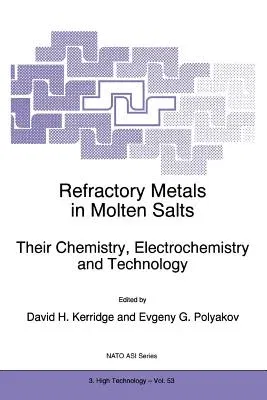Refractory Metals in Molten Salts: Their Chemistry, Electrochemistry and TechnologyPaperback, 5 December 2010

Qty
1
Turbo
Ships in 2 - 3 days
In Stock
Free Delivery
Cash on Delivery
15 Days
Free Returns
Secure Checkout
Part of Series
NATO Science Partnership Subseries: 3
Part of Series
NATO Science Partnership Sub-Series: 3:
Part of Series
NATO Science Partnership Subseries: 3 (Closed)
Print Length
273 pages
Language
English
Publisher
Springer
Date Published
5 Dec 2010
ISBN-10
904815054X
ISBN-13
9789048150540
Description
Product Details
Book Format:
Paperback
Country of Origin:
NL
Date Published:
5 December 2010
Dimensions:
23.39 x
15.6 x
1.52 cm
ISBN-10:
904815054X
ISBN-13:
9789048150540
Language:
English
Location:
Dordrecht
Pages:
273
Publisher:
Series:
Weight:
408.23 gm

